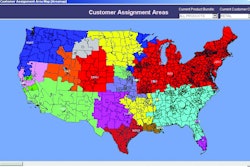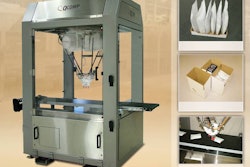Manassas, Va.—April 18, 2013—INSIGHT Inc., an international provider of planning solutions, released version 4.6 of SAILS and Insight Enterprise Optimizer (IEO), the industry reference standards for strategic supply chain design. The latest versions incorporate new features requested by clients that address sustainability; manufacturing options; transportation rate databases; and managerial preferences.
“More and more clients are requesting sophisticated databases and advanced analytics to directly address supply chain sustainability audits and optimization initiatives in conjunction with the traditional metrics of cost and time,” explained Jeff Karrenbauer, President of INSIGHT Inc. “SAILS 4.6 now offers the most comprehensive sustainability functionality in the industry. We have also built these capabilities into the latest release of IEO to better address complex sustainability questions in light of the demand and cost impact of various marketing initiatives in the context of the entire supply chain—all under a profit maximization umbrella.”
SAILS V4.6 newest features that address sustainability include:
- Ability to simultaneously measure and report energy consumption and carbon emissions for the entire supply chain, including procurement, manufacturing, warehousing and transportation activities. This supports shareholder, management and government compliance reporting requirements
- Ability to report ton-miles (or equivalent), which is useful for estimating energy efficiency and carbon emissions for various transport modes
- Ability to optimize the network with respect to cost, time, energy or carbon, while simultaneously reporting all other measures. This enables the user to directly compare network designs across scenarios with varying optimization criteria (i.e. what is the least expensive network, the most energy efficient network, the network with the least carbon emissions, etc.)
- Incorporation of innovative research from the University of Rhode Island supply chain management program with respect to carbon emissions of various manufacturing processes
All of the above support a relatively new perspective: analyzing the impact of outsourcing decisions, especially those which result in very long international supply chains, not just in terms of cost but also with respect to energy and carbon emission impacts.
SAILS V4.6 newest features that address manufacturing processes include:
- Improved representation of long-term capacity limits, such as those associated with contractual obligations. This results in better procurement and production capacity planning and allocation, especially where volume discounts are applicable
- Improved, sophisticated representation of the production lines/processes where multiple commodities compete for the same capacity, which results in more accurate production capacity planning and allocation
SAILS V4.6 newest features that address managerial rules include the:
- Ability to specify min/max, volume, energy and carbon emission limits for arbitrary subsets of facility locations, production lines and processes. This enables the user to directly incorporate cap-and-trade-based carbon emission restrictions or limit the number of locations or processes of a specific type or in a given area
- Ability to specify managerial rules such as IF x happens THEN y MUST (MUST NOT) happen. This enables the user to easily assess the impact of such preferences or requirements with much fewer model exercises and far less analysis effort
INSIGHT Enterprise Optimizer (IEO) 4.6 includes all of the above new features; and enables users to balance all relevant enterprise operations costs including procurement; manufacturing; warehousing; port handling; transportation; inventory holding; duties; taxes; and marketing costs with the cost and demand impact of new marketing initiatives under a profit maximization umbrella. With IEO 4.6, relevant energy and carbon emission restrictions can be added to the traditional capacity limits associated with procurement, manufacturing, throughput and storage.

















